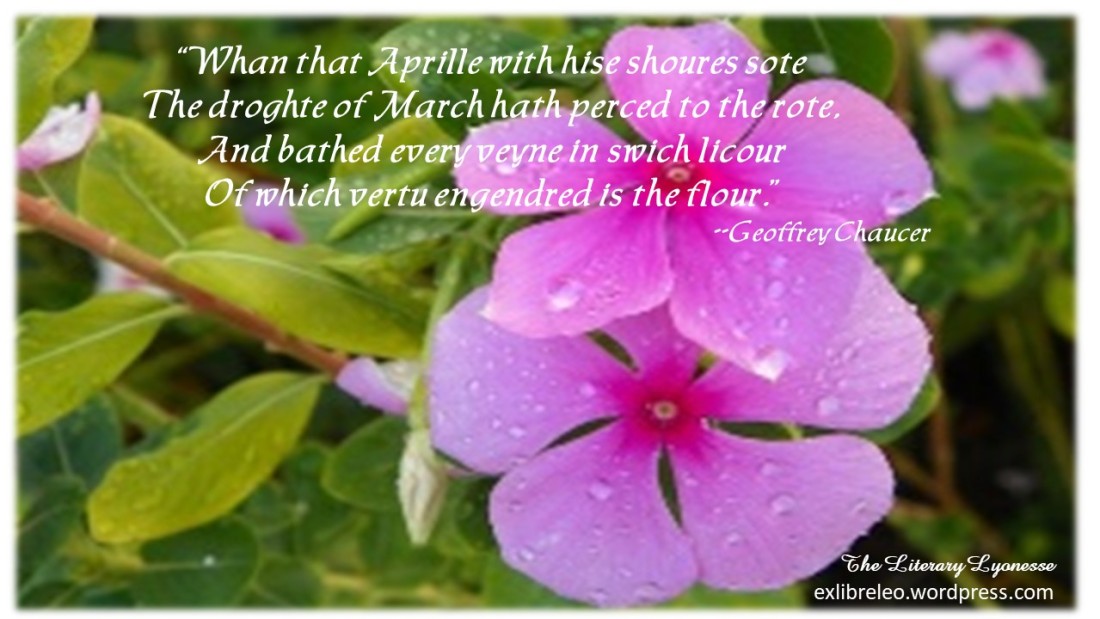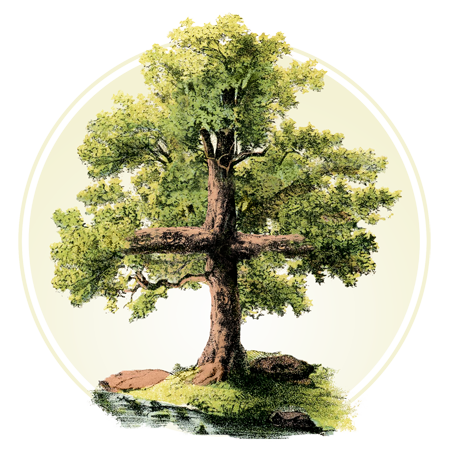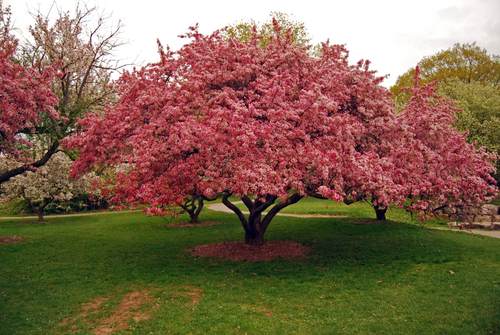Ah, Spring! Thou hast returned, and none too soon!
(Note: Spring is capitalized in the preceding sentence only because I have personified the word. According to Harbrace Rule 9a: “The names of seasons—spring, summer, fall, winter—are not capitalized.”)
Yes, Tennessee has endured a seemingly endless wet winter, but the new season of spring has now awakened a sense of hope after a period of short gray days and long cold nights.
But we must endure the bad to fully appreciate the good. “April showers bring May flowers,” right?

In his prologue to “The Canterbury Tales,” Geoffrey Chaucer praises the many elements of nature that herald a beautiful time of year. He references the April rains which bathe the flowers’ veins, preparing the way for nature’s rebirth.
In the late 1700’s William Wordsworth wrote the lyrical poem “Lines Written in Early Spring.” He must have been influenced by the April showers as well as the flowers that follow the rains.
As a religious man Wordsworth believed communing with nature allowed him to commune more closely with God. This poem, however, presents a paradox of emotions: the pleasures of experiencing the beauty of God’s creation and the pain of knowing the miseries of humanity.
Spring caused the poet’s pleasant thoughts to drift to sad thoughts, and his heart mourned to think “what man has made of man.”
While Wordsworth’s thoughts were likely tainted by the cruelty of the French Revolution, our thoughts can also be easily turned afoul if we dwell on the myriad problems of our modern society.
Like Wordsworth, my heart also grieves “to think of what man has made of man.” But today, I choose to have hope. Instead of dwelling on the cross, I choose to focus on the crown.
A beautiful song entitled “Mercy Tree,” written by Krissy Nordhoff and Michael Neale, illustrates the bittersweet experience of death and resurrection and the hope that springs eternal.

On a hill called Calvary, there stands an endless mercy tree. Every broken, weary soul, find your rest and be made whole. Stripes of blood that stain its frame shed to wash away our shame, from the scars, pure love released, salvation by the mercy tree. In the sky between two thieves hung the blameless Prince of Peace, bruised and battered, scarred and scorned, Sacred Head pierced by our thorns. “It is finished” was His cry! The perfect Lamb was crucified. The sacrificed, our victory, our Savior chose the mercy tree. Hope went dark that violent day. The whole earth quaked at Love’s display. Three days silent in the ground, this body born for Heaven’s crown. On that bright and glorious day, Heaven opened up the grave. He’s alive and risen indeed! O praise Him for the mercy tree! Death has died; love has won. Hallelujah! Hallelujah! Jesus Christ has overcome; He has risen from the dead. He’s risen from the dead!
The sweetness overcomes the bitterness. The Son shines in spite of the pain. We can appreciate the sunshine because we’ve endured the rain.
The crab apple trees in full bloom at this time of year also offer a perfect metaphor. These trees have beautiful blossoms but bear bitter fruit.
Bask in the beauty, not the bitterness.

If you are in a season of despair, have patience. Your season of hope is imminent.
Song of Solomon 2: 11-12: “For behold, the winter is past; the rain is over and gone. The flowers appear on the earth, the time of singing has come, and the voice of the turtledove is heard in our land.”
Zechariah 10:1; Isaiah 35:1
Thank you for this.